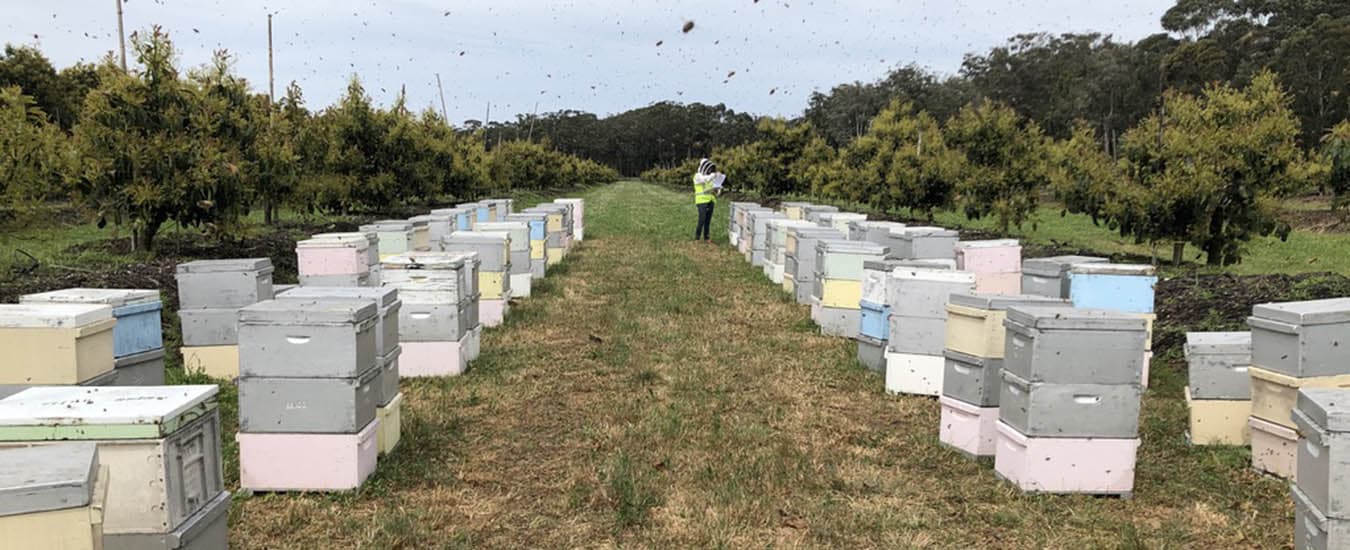As part of the Plan Bee program, research has been undertaken to determine the feasibility of breeding bees for specific crops including alfalfa, apples, avocado and sunflowers.
This has been done by selecting colonies that collected a greater proportion of pollen from the target crop (alfalfa, apple, sunflower). Unfortunately, some of these programs resulted in stock with low brood viability and poor winter survival, and the stock was ultimately abandoned.
However, the mechanism for avocados is different. Avocados have protogynous dichogamy – male and female flowers open at different times of day. Avocados are therefore best pollinated by nectar foragers as they are more likely to move between flowers producing pollen and those producing nectar.
With this in mind, researchers selected for colonies with increased avocado nectar foraging by measuring the amount of perseitol in honey. Perseitol is a hydrocarbon unique to avocados, so high perseitol measures indicate that the colony has been foraging heavily on avocados.
There are drawbacks to selecting bee stock for a single crop. Crops are only available for a small portion of the year, and thus the bees need to be versatile to forage on a range of plants. Moreover, if the crop in question has any nutrient deficiencies, this will have an impact on the health of the hive and reduce its ability to perform pollination services.











